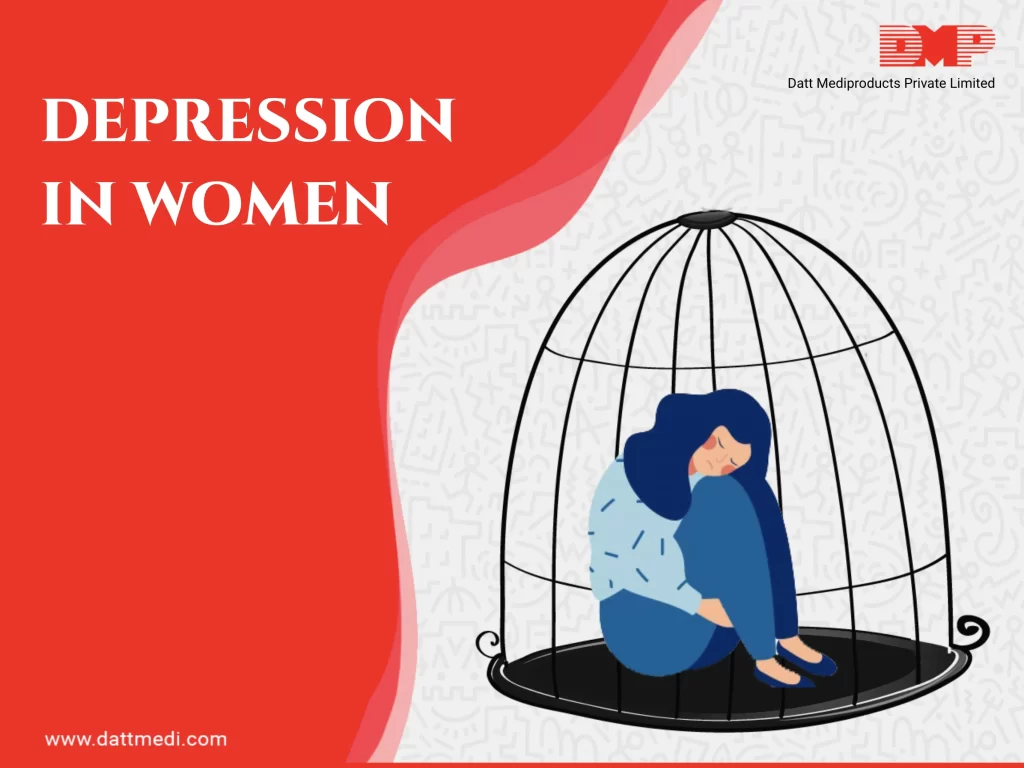
Depression is a common and serious mental illness. It doesn’t feel the same for everyone. Do you know that women are twice as likely to experience a depressive episode in their lives than men?
Gender is a critical determinant of mental health as men and women have differential power and control over socioeconomic factors for leading their lives, status & treatment in society, and exposure to certain mental health risks.
It has been documented that one in eight women will develop depression at some point in their lives. There may be several contributing factors such as reproductive hormones, social pressure, a woman’s response to stress and several other ups and downs that are unique to a woman’s life experiences. Biological factors and inherited traits are also associated with a higher risk of depression.
Some Women Mental Health Facts: World Health Organization
– Depressive disorders account for close to 41.9% of the disability from neuropsychiatric disorders among women compared to 29.3% among men.
-Leading mental health problems of older adults are depression, organic brain syndromes and dementia. A majority are women.
-An estimated 80% of 50 million people affected by violent conflicts, civil wars, disasters, and displacement are women and children.
-Lifetime prevalence rate of violence against women ranges from 16% to 50%.
-At least one in five women suffer rape or attempted rape in their lifetime.
We have tried to list down some of the major factors that come into play when citing the cause of depression in women.
BIOLOGICAL FACTORS
Genetics: Depression runs in families and there is scientific evidence that some genetic makeups are more prone to depression than others which are resistant.
Chemicals & Hormones: Hormonal changes during puberty may increase girls’ risk of developing depression. Most females with premenstrual syndrome (PMS), experience symptoms such as abdominal bloating, breast tenderness, headache, anxiety, irritability. PMS may cross the line into premenstrual dysphoric disorder (PMDD). Another contributing factor to depression can be hormonal changes during pregnancy or other issues like miscarriage, unwanted pregnancy, infertility etc.
Experiencing baby blues by new mothers is normal which usually subsides within a few weeks. When this becomes severe and lasts for a longer time it’s called postpartum depression. Even in the transition from perimenopause to menopause, the reproductive hormones rapidly fluctuate increasing the risk of depression.
SOCIO-CULTURAL FACTORS
Trauma: Research shows that child abuse especially childhood sexual abuse may put you at a higher risk of depression.
Social Oppression: Unequal power experienced by women in society, such as discrimination at work, losing job, unemployment, persistent money problems or women from lower socio-economic status, or colour women may encounter a higher risk of depression.
Multiple roles: As a woman you have many life roles. You act as a mother, wife, caregiver, employee, friend. These roles can give you utmost satisfaction but may also result in significant strain and stress.
PSYCHOLOGICAL FACTORS
Stressful life events like death of a loved one which leaves you feeling helpless, alone or profoundly sad.
Depression can drain you mentally and physically, it can make you feel empty and fatigued. Taking action when you’re actually depressed is difficult.
However, while you may not have much energy, just try to pick up the phone to make a call to your loved one or go for a short walk in fresh air or do something for boosting your mood and improving your outlook.
You may read our recent blog “Tips to Keep Positive” at www.dattmedi.com for keeping a positive attitude and lead a healthier life. Speak to a professional they can assess your symptoms and be able to provide you with a plan be it medication or alternative therapy.




